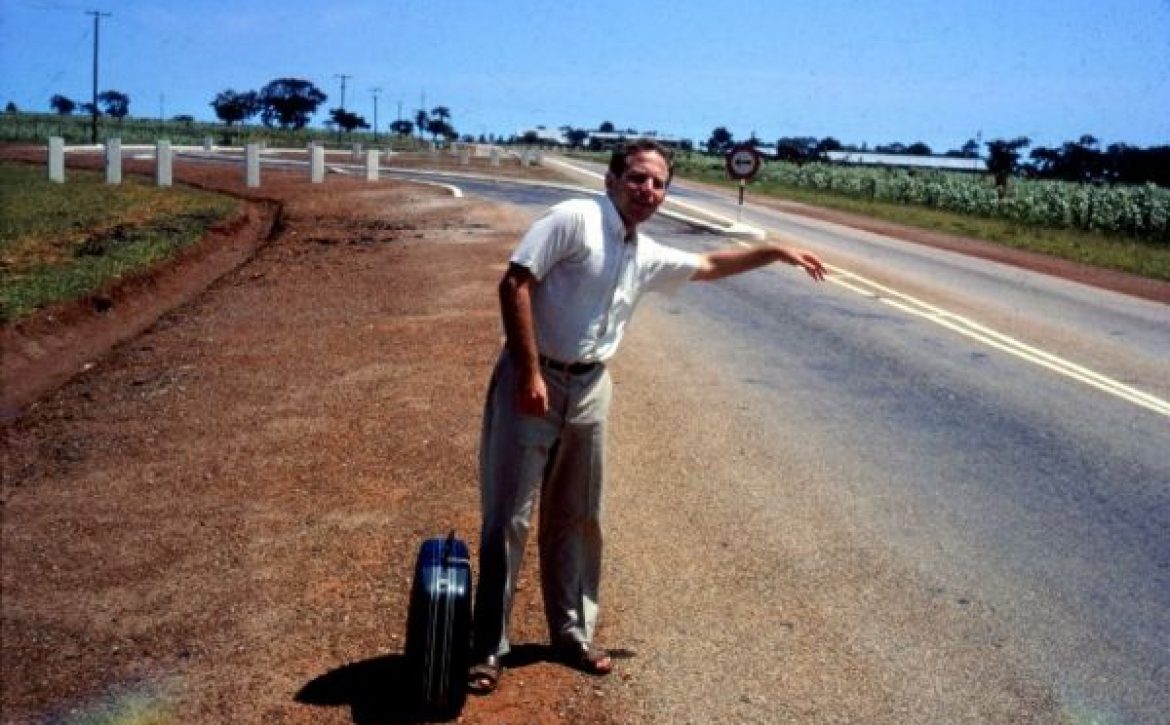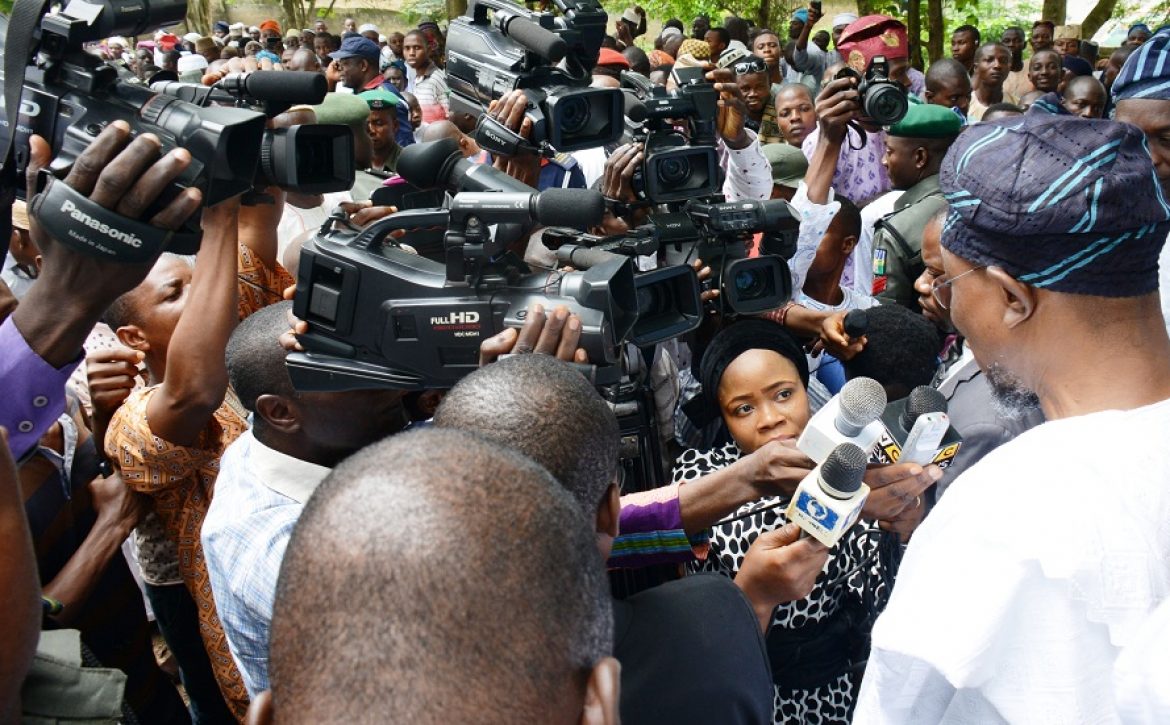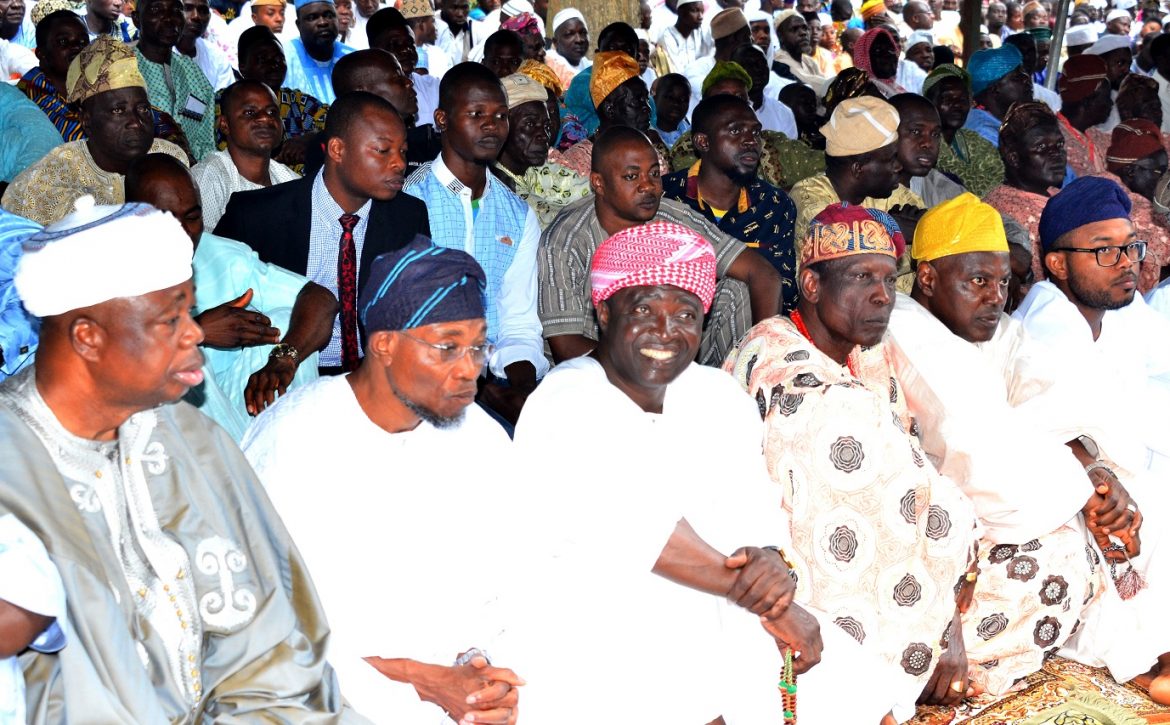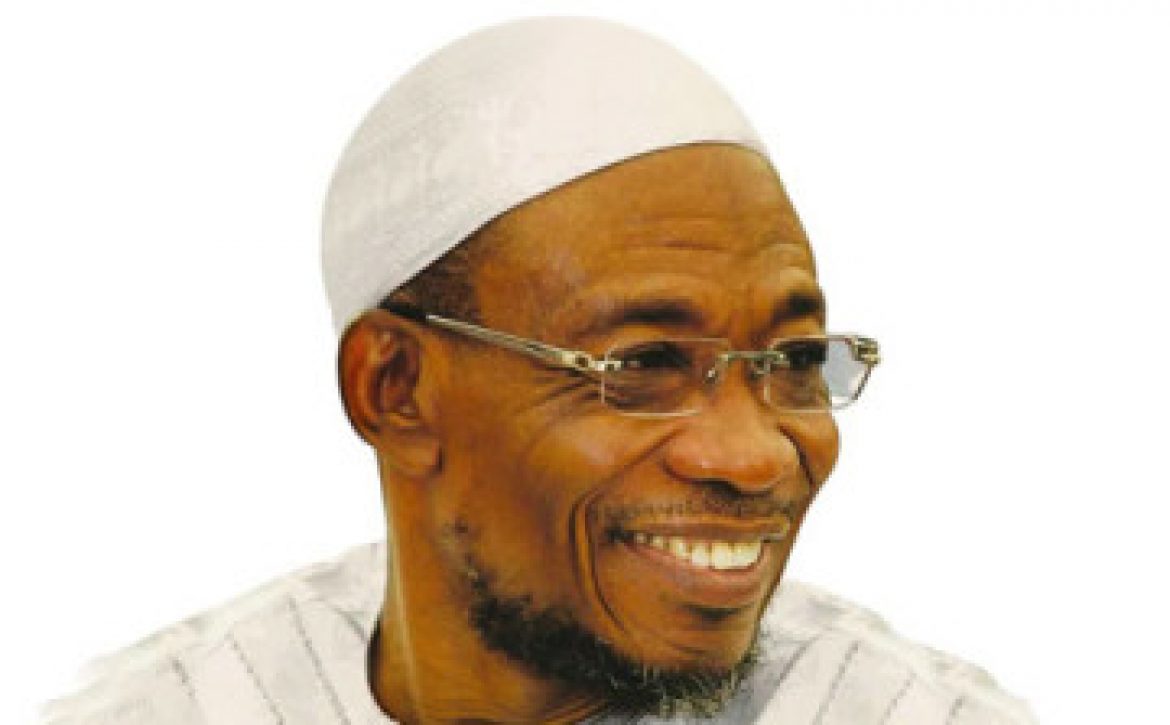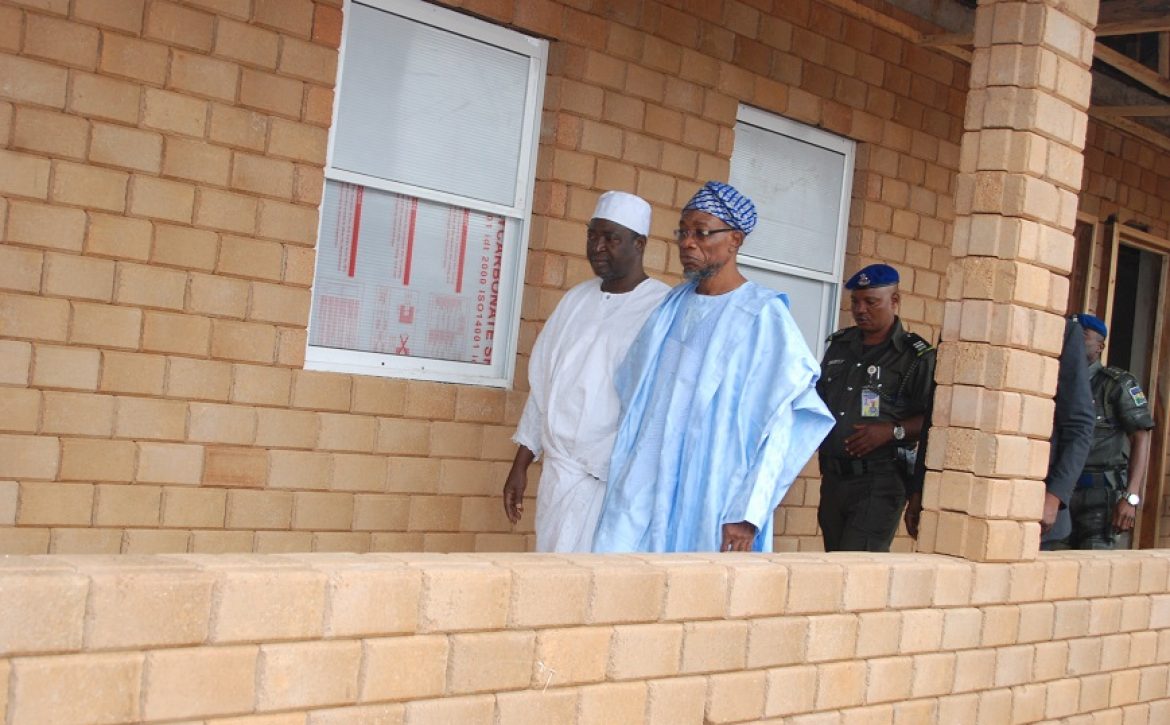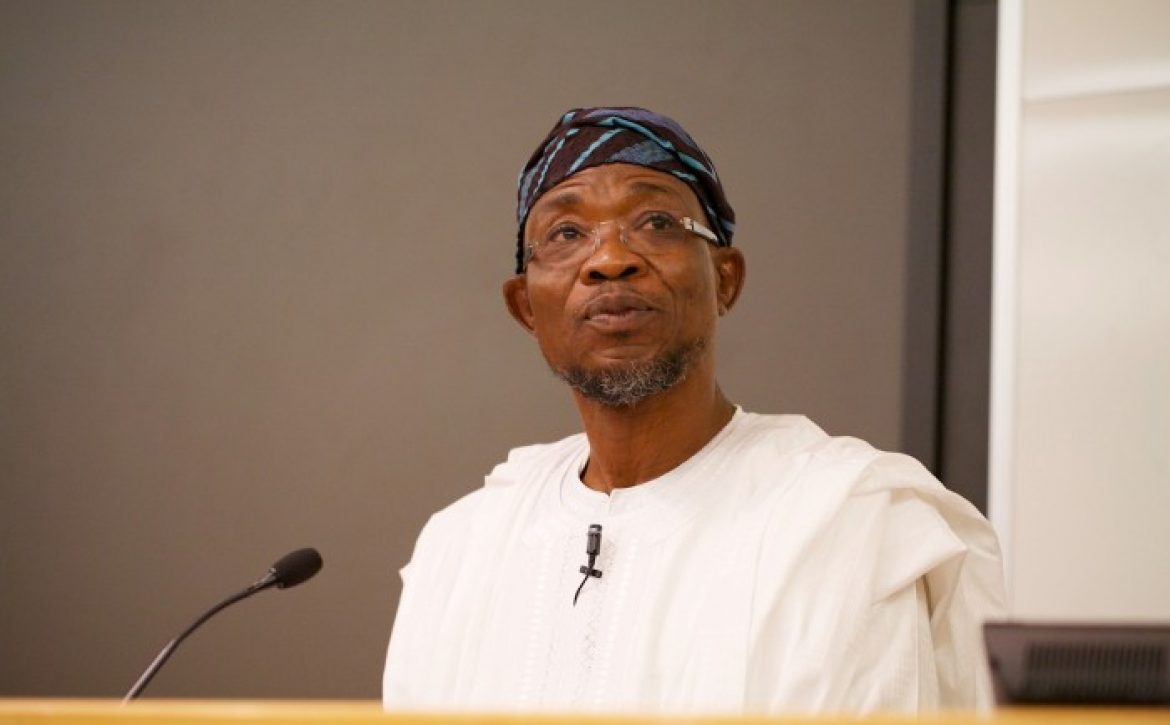 The convoy of the Governor of Osun, Ogbeni Rauf Aregbesola was forced to a halt on Thursday by jubilant residents who struggled to demonstrate their love for him as he made his way to the Eid praying ground at the state capital, Osogbo.
The convoy of the Governor of Osun, Ogbeni Rauf Aregbesola was forced to a halt on Thursday by jubilant residents who struggled to demonstrate their love for him as he made his way to the Eid praying ground at the state capital, Osogbo.
Apparently determined to show their support in spite of the recent financial challenges faced by the state, some of the residents said they needed to show that inspite of the hardship caused by national wage crisis, they recognised the administration’s landmark achievements.
Beaming with smiles, the Osun Governor was forced to halt at Oke Baale where a group of broom wielding young men stormed the way to express appreciation to Aregbesola.
“We appreciate you. God loves you. God will answer your prayers. God will give you triumph over adversary. You are our Governor. Let them tell one million lies against you, we shall stand by you. Ride on, the man we love.” Were some of the messages on the placards displayed by some of the residents.
The Governor specifically ordered his convoy to stop so that old women who were dressed in uniform Ankara attire danced gorgeously in appreciation of Aregbesola and his achievements particularly in Osogbo.
As his convoy arrived at the Eid ground, men, women and children shouted “Aregbe ti De!” meaning he (the Governor) had arrived.
Decked in flowing white garment and without wasting time, the Governor made his way to the front row where the Hutba (admonition) was going on to take his seat and listen with rapt attentiom.
When the Chief Imam completed his Ileya message, thousands of worshipers gathered to listen to Governor Aregbesola who greeted the faithfuls and wished them happy celebrations.
As the convoy moved close to the Art House of late Susan Wenger, a nursing mother with her baby in hand gained the attention of the Governor as he waved left and right to thank the people.
As this was going on, the woman hardly cared about her situation but determinedly stepped out to greet Governor Aregbesola.
Aregbesola, who had to stand out through the open roof of his car to acknowledge cheers waved at the woman as she carried her sucking baby in one arm and ran out of her house to wave at Governor.
The highpoint of the celebrations was at Oja Oba round about where young folks had gathered to celebrate Ileya. An old woman with a wrapper round her chest struggled among the crowd to greet the Governor just as young ladies and market women abandoned their wares to cheer him. Another broom wielding mother who had strapped her baby to her back struggled through the crowd to catch a glimpse of the Governor.
Earlier at the praying ground, the Governor appealed to Nigerians to promote peaceful co-existence within and outside their communities for the sustenance of national development.
Aregbesola, speaking with Journalists shortly after the Eid prayers at the Oke-Baale, Osogbo praying ground described selfless sacrifice as the supreme mechanism that will promote peaceful co-existence.
The governor enjoined Muslims across the world to do away with any act capable of turning them against the will of God and as well uphold all the commandments of Allah in all aspects of their daily lives.
He also reminded Muslims on the significance of Eid-el-kabir, emphasizing the need for Muslims to imbibe the virtues of truthfulness, cleanliness, love, peace and unity by forgiving people who might have offended them.
Aregbesola implored Muslims to abstain from the evil act of lieing, saying, lies against other fellow being amounts to a greater sin before Almighty Allah.
He noted that there is need for Muslims to refrain from such devilish acts as forbidden by Allah and His Prophet Muhammed.
Aregbesola reiterated that the lessons expected to be learnt by all Muslims in the commemoration of Eid-el-kabir was to demonstrate and display higher sense of submission to the will and commandments of God as being demonstrated by the Father of faith-Prophet Ibrahim.
According to him, “The meaning of this festival is to sacrifice everything endowed to us by our creator for His cause and other fellow human beings to promote and improve our individual and collective existence as being commanded by Allah.
“There is need for us to sacrifice all our limitations, our shortcomings and vices that we know well for our personal and collective development as a nation.
“As a nation, there is a need for us to do away with those things that we do that stem development and reduce our progress by applying all the teaches of the holy Quran and Haddith of Prophet Muhammed.
“The purpose of rams slaughtering today in commemoration of Eid-el-kabir festival is for us as worshippers to kill our bad acts and behaviours that impede the progress and success of others in order for us to move forward.
He noted that there is the need for Nigerians to promote activities and actions that will edify individuals, regions and the nation at large.
The governor charged Muslims to cultivate and apply the virtue of love, tolerance and perseverance in every aspect of their lives in order to move the nation forward.
He said Islam is a religion of peace, love and kindness that teaches us to place general good above personal interest in line with Allah’s commandments.
Speaking on the significance of Eid-el-kabir, Governor Aregbesola said the celebration became imperative for all Muslims across the universe to replicate the supreme sacrificial obedience and price rendered by Prophet Ibrahim who was known as father of faith, charging Muslims to show love to one another.
He implored Muslims to continuously seek the face of God and His mercy at positioning the country to the desired place of sustainable peace, harmony and tranquility.
Earlier in his sermon, the Chief Imam of Osogboland, Sheikh Musa Animasahun admonished Muslims to fear Allah and always remember that they will leave this earth whether they like it or not, saying the worthy soul was the one that lives on the cause of Allah.
Sheikh Animasahun warned Muslims to stop pursuing good things of life at the expense of the eternal life in Paradise, reiterating that everything on earth is vanity.
“Death is an inevitable supreme price that must be paid by every living soul whether we want it or not and as such there is need for us to do good and extend the spirit of kindness, alms giving to the poor and the less privileged,” Sheik Animasahun noted.



